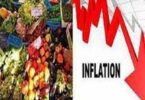F.P. Report
ISLAMABAD: The Federation of Pakistan Chambers of Commerce & Industry’s Businessmen Panel (BMP) has said that the country is at the crossroad, as bringing the economy back on track is imperative to restore political stability and to overhaul the bureaucratic machinery.
The FPCCI former president and BMP Chairman Mian Anjum Nisar said that the economic and fiscal discipline of the country will be driven under the direction of IMF, leaving little room for political parties to make its way, which has not come up with any plan to fix the economy and provide relief to the trade and industry.
Quoting the media reports, he said that the SIFC’s role as advisors and decision-makers may work well. But, when it comes to the implementation of the decisions and delivery on ground, there are multiple bottlenecks. The executing entities in the public sector are politicized, compromised, outdated and lack competence.
Mian Anjum Nisar said that the economy of the country is at the stake now, as the state of the economy and peoples’ welfare are of secondary interest to the political parties and little has so far been achieved at macro or micro levels. Higher inflation, rising utility tariffs, growing unemployment and, above all, the malaise and despondency among the masses are likely to continue unattended.
Economic vulnerability now looms with political uncertainty at its core. The Moody’s Investors Service has recently given a ‘credit negative’ signal to Pakistan in the face of prolonged political ambiguity and social tensions over election results, which will make it tough to approach the IMF for a new program, weaken external economy and make liquidity management more challenging.
He said that the privatization commission of Pakistan is struggling since months to effectively put in place the privatization of loss-making public sector enterprises; notably, the Pakistan Steel Mills and Pakistan International Airlines despite the urgency and concern expressed, time and again, by the IMF. The election held on Feb 8th in Pakistan threw up a number of surprises with a significant shift in the country’s political landscape.
With no political party commanding a 2/3rd majority at the center, nor even a simple majority, the decision-making processes and any constitutional amendment are likely to be driven and influenced more by conflicting self-interests of the coalition partners, watering down the key objectives. This is not what the country needs in these unprecedented times of political and economic challenges confronting the nation.
In its report titled ‘Political uncertainty persists in Pakistan following inconclusive election results, a credit negative’, the global credit rating agency said: ‘overall, uncertainty around Pakistan’s ability to quickly negotiate a new IMF program after the current one expires in April 2024 remains very high. Pakistan’s government liquidity and external vulnerability risks will remain very high until there is clarity on a credible longer-term financing plan.’
It said Pakistan’s foreign exchange reserves remained ‘very low’ at $8 billion as of Feb 2, 2024, sufficient to cover only about six weeks of imports and well below what was required to meet external financing needs for the next three to four years.
Based on the IMF’s report published in January, Moody’s said Pakistan’s external financing needs were about $22 billion in the next fiscal year (Jul-Jun) 2024-25 and about $25 billion annually in fiscal 2026 and 2027. The country will need a longer-term financing plan to meet its very large financing needs for the next few years, after its current IMF program ends in April 2024.
At present, Pakistan has been assigned a stable rating of “Caa3” by Moody’s. It said prolonged delays in the formation of a government would increase policy and political uncertainty at a time when it faced very challenging macroeconomic conditions.
The performance of the former coalition government of Pakistan Democratic Movement (PDM) in the fiscal year 2022-23 was disappointing. When austerity and debt servicing was the need of the hour the government expenditures were over Rs2.2 trillion higher than budgeted that resulted in a 25% increase in the debt burden for every citizen, whereas, the gross public debt jumped to Rs62.9 trillion by June 2023.
Hopefully, the new coalition government will be sensitive to the social, economic and fiscal issues of the state, which in the meantime have exacerbated further. Pakistan’s debt-to-GDP ratio is already above 70% and the IMF and credit rating agencies estimate that interest payments on its debt will soak up 50% to 60% of the government’s revenues this year. Debt exceeds legal limit by Rs14.5tr. That is the worst ratio of any sizable economy in the world.
Every macro fundamental is flashing red; notably, growth, debt, revenue mobilization and investment. Some strong and immediate decisions have to be taken by the new government.
The decision to immediately go for another IMF program appears settled. A $3 billion program from the International Monetary Fund runs out next month and securing a new program is imperative, given that Pakistan’s foreign exchange reserves are abysmally low compared to its large impending external debt repayment needs. Former deputy governor of the central bank, Murtaza Syed, has said. There is no alternative. In a recent public statement Shahbaz Sharif voiced similar compulsion and has been vocal in advocating another IMF program.







